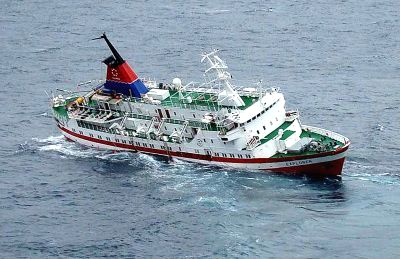NZ fears tourism disaster in Antarctica

New rules are needed for tourist ships visiting Antarctica to prevent a disaster in the world's most isolated region, New Zealand Foreign Affairs Minister Murray McCully said Wednesday.
"I am greatly concerned that unless we take action, there will be a serious maritime casualty involving a tourist vessel in Antarctica, and we will be faced with a humanitarian and environmental disaster," McCully said.
A three-day meeting started in Wellington Wednesday of about 80 experts from the 47 Antarctic Treaty countries, aimed at drawing up new regulations for tourist ships visiting Antarctica.
McCully told the meeting that four tourist ships had run aground in the past three years, and 154 people had to be rescued by a nearby vessel after the Canadian-owned Explorer sank after hitting an iceberg in 2007.
"We were lucky. No one was lost in that incident, but the fact that there have not been more serious consequences owes more to good luck than good management," he said in a speech.
"Clearly, we are on borrowed time."
The number of annual visitors in tourist ships has quadrupled to around 46,000 over the last 15 years, and there are concerns some of the ships are not suitable for the extreme conditions.
The meeting is expected to come up with recommendations on the types of ships that can be used in Antarctic waters, and whether they should be required to sail with another ship nearby for safety's sake.
Other recommendations will be aimed at ensuring the Antarctic environment remains pristine, including whether to ban the use of heavy fuel oil, which if leaked could have a devastating impact on wildlife.
The experts' recommendations will go to a meeting of Antarctic Treaty members in Uruguay in May next year.
Join our commenting forum
Join thought-provoking conversations, follow other Independent readers and see their replies
Comments